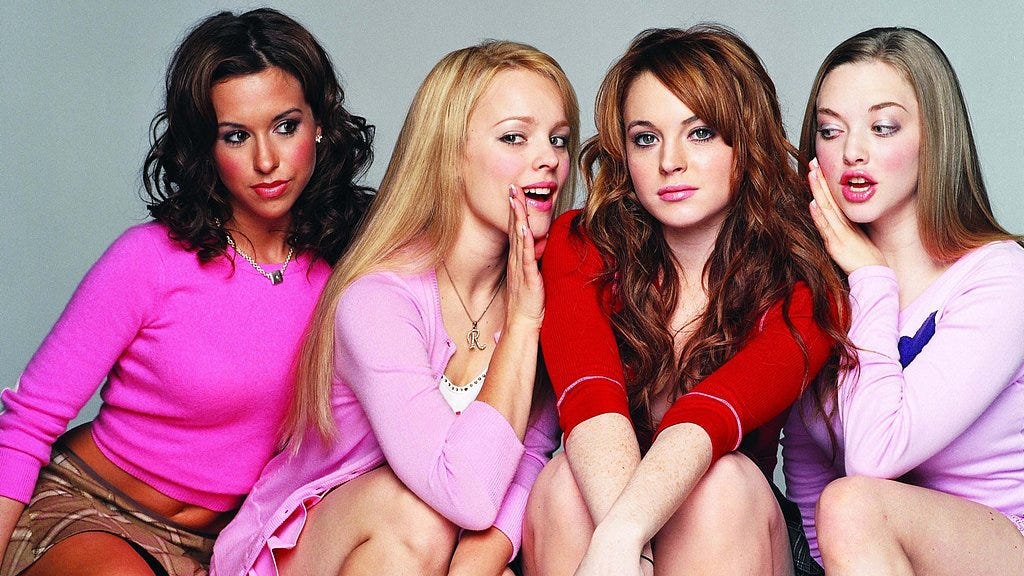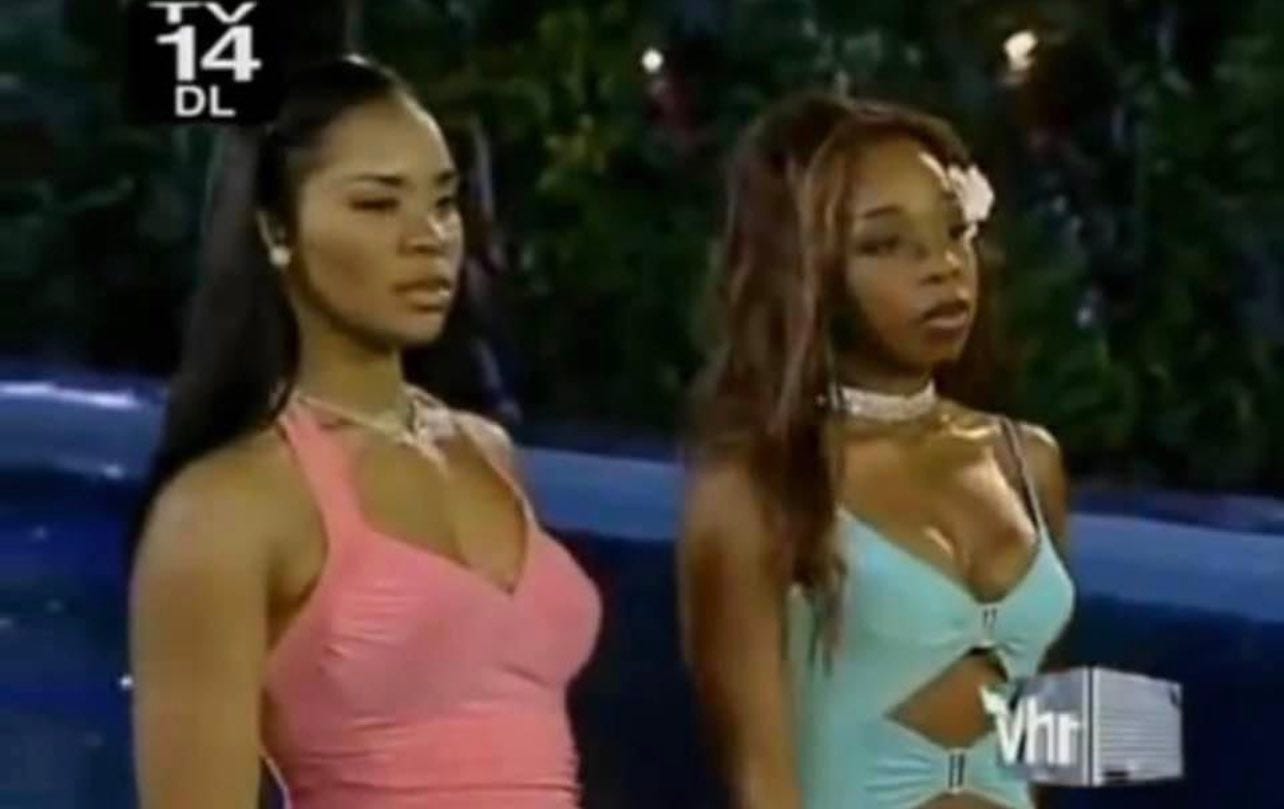The Reality of Female Intrasexual Competition
Intrasexual competition is real, and we can stop pretending it's not
There are a bunch of TV and movie tropes that just don’t exist anymore. One that came to mind is the mischievous kid—usually a boy around nine to eleven years old—who hates school, loves playing pranks, and often has some long-standing feud with a teacher or principal. Obviously, Bart Simpson is the first example for many people, but looking at old ‘90s or even ‘00s media, there are so many others like him—and their crotchety curmudgeon teachers and principals—and it’s striking to note how few of these characters exist today. For better or worse, kids’ media can no longer be cheekily anti-establishment. We don’t get to “slime your teacher” anymore, because of woke.
But there’s another trope that I realize has completely evaporated, and that’s the catty female love rival. Don’t get me wrong—stories about love triangles still exist. But if these triangles involve two women, there’s an unspoken rule that the rival has to ultimately become a friend (or maybe she was a friend all along and the rivalry was in the main character’s head.) Even though she wasn’t a love rival, we aren’t allowed to have Emily Blunt’s frosty character in A Devil Wears Prada anymore. Today, she would be a chipper, sassy “work wife.” While I felt that the 2004 instant classic, Mean Girls, was a fairly accurate (if not slightly exaggerated) depiction of high school “Girl World,” I recall the vibe shifting at some point over the next ten years, and people souring on the movie because it “pitted women against each other.” (I think this is one of those things where the depiction of a thing is seen as endorsement of that thing.)
When I saw the more recent romcom Anyone But You, the first thing that came to mind was that they managed to squeeze two extremely hot actors into a terrible screenplay almost as awkwardly as they squeezed Syndey Sweeney’s boobs into purposefully ill-fitting bikini tops in every scene. But the next thing I noticed was that the female love rival—the woman with whom Syndey Sweeney “competes” for Glenn Powell’s attention—isn’t much fun as far as love rivals go. Yes, she’s intimidatingly modelesque, but she’s a very pleasant person who doesn’t even seem to care that much when Glenn and Sydney get together.
Before you accuse me of writing an entire article about a C+ romantic comedy, this is just one example. After my failed novel, the agent who dumped me reached back out to see if I would be open to ghost writing a new novel—the plot was already sketched out; I just needed to write the story. The novel would follow a young woman whose ex-boyfriend recently got engaged to someone new, and she would have to face the happy couple at a mutual friend’s wedding. I wrote a sample chapter to be considered for the project, where the main character discovered the news of the engagement via her best friend, and had a meltdown, saying:
“All his excuses about how she shared his values. What are her values, exactly? The Valencia filter on Instagram? Jeremy is an asshole too. But at least when I see him, I don’t have to look my replacement directly in the face. I see her, and I look at everything I wasn’t.”
My agent flagged this (and well, the entire chapter) for sounding “catty,” which was apparently something that the publishing industry was actively trying to avoid. Is it that unrealistic that a young woman might say something a little catty when faced with the upsetting news of an ex getting engaged (especially since, in the context of this book, it’s implied she was cheated on?) I was told that I needed to make the other woman a “well-rounded person” and add nuance and depth to her character so that the audience didn’t dislike her too much.
Around the same time, I posted this (deliberately catty- from the mind of a middle schooler) cartoon on Reddit, and was immediately slammed for being “deeply misogynistic” because I was “pitting women against each other.” The reaction was so negative that I actually worried I’d need to delete my entire CHH account because the comic would inevitably come back to “cancel” me.
It was the late 2010s, and any kind of female competition—or acknowledgement of it—was becoming verboten, unless they were competing in a spoken word poetry contest about unrealistic body image. It was the dawning of the age of the “girls’ girl” which at that point was a much more Jezebel-y concept, usually denoted by catchy phrases such as “Maybe stop SHITTING ON OTHER WOMEN.” Women had to “stick together,” even if one of them knowingly slept with the other one’s husband (“she didn’t owe you anything!!!”)
I understood the purpose of this—perhaps previous forms of media pitted women against each other too much, reducing any tenuous female dynamic to “catfights,” contrasting the Madonna and the whore, the devil and the angel—the Deelishis and New York, if you will. Perhaps the trope was simply overdone. But removing it created this jarring, uncanny parallel universe where I was supposed to believe that two women in love with the same man wouldn’t harbor any animosity toward each other.
I knew how ridiculous this premise was first-hand. The very first night I met my husband, a girl at our college (who I barely knew) materialized like some kind of Banana-Republic-wearing specter. She politely pulled him aside, said something to him, and vanished. Seconds later, he cluelessly turned to me and said, “She just told me you’re a slut and she’s worried about me.”







